The three best outdoor fitness programs for special needs include nature-based adaptive movement programs with multi-sensory engagement, community park systems with specialized inclusive equipment, and therapeutic outdoor adventures like equine therapy and wilderness activities. You’ll find these programs enhance physical health while building self-esteem and social skills in natural settings. Each option offers modifications for various abilities and can be tailored to individual needs, with benefits extending far beyond traditional exercise approaches.
Nature-Based Adaptive Movement Programs for All Abilities
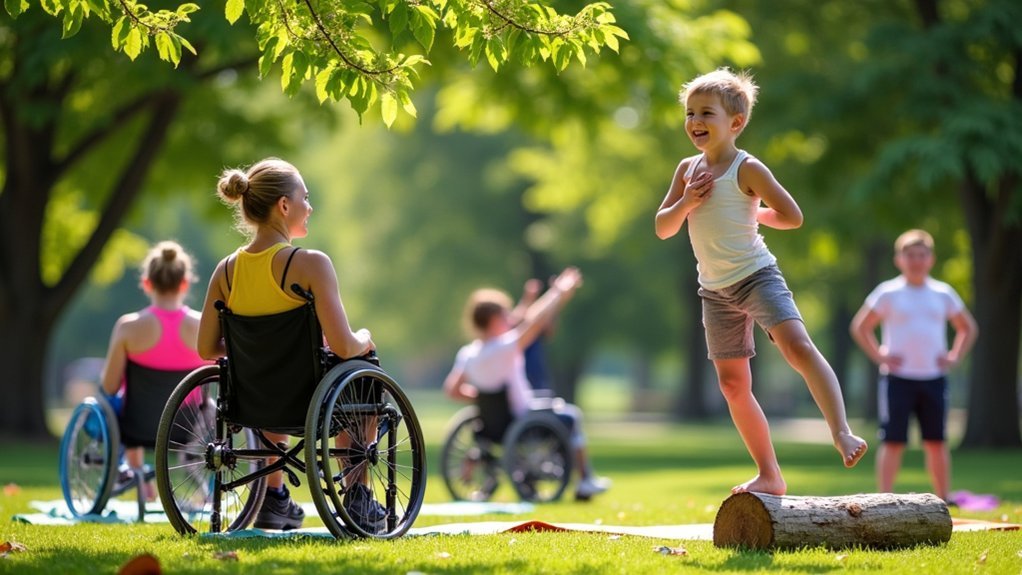
While traditional fitness programs often overlook individuals with special needs, nature-based adaptive movement initiatives are revolutionizing inclusive outdoor recreation.
These programs thoughtfully integrate diverse physical, cognitive, and sensory abilities, ensuring you’ll find activities tailored to your specific needs.
You’ll discover multi-sensory engagement opportunities through tactile trails, auditory cues, and visually contrasting elements in natural settings.
Universal accessibility features like smooth paths, ramps, and strategic rest areas accommodate mobility devices, making exploration possible for everyone.
Thoughtfully designed outdoor spaces remove barriers, inviting all bodies to experience nature’s embrace.
Safety is paramount, with careful modifications addressing environmental hazards while preserving therapeutic benefits.
Local ecosystems are thoughtfully adapted to enhance movement potential without compromising natural integrity.
The result is an outdoor experience where you’ll benefit from nature’s healing properties regardless of ability level. These programs align with the principles of Ecosystem-Based Adaptation, which recognizes the importance of integrating nature into climate resilience efforts while providing additional benefits like improved health outcomes.
Community Park Systems With Specialized Inclusive Equipment
Community park systems across the nation are transforming into inclusive hubs through specialized fitness equipment designed for individuals of all abilities.
These Fitness Zones, costing about $45,000 for eight pieces of equipment, provide durable, weather-resistant options for both strength and aerobic exercises.
You’ll find these installations particularly beneficial if you’re supporting someone with special needs, as they offer accessible design features that accommodate various mobility requirements.
The equipment is typically suitable for ages 13 and up, creating opportunities for diverse community engagement.
While usage rates can be low, you can maximize benefits through educational programs and regular maintenance.
Compared to traditional gyms, these outdoor fitness parks offer cost-effective physical activity options that improve health outcomes while fostering community interaction. These inclusive spaces help combat rising obesity rates by providing equal access to fitness opportunities for all community members.
Therapeutic Outdoor Adventure Activities for Mental and Physical Wellness
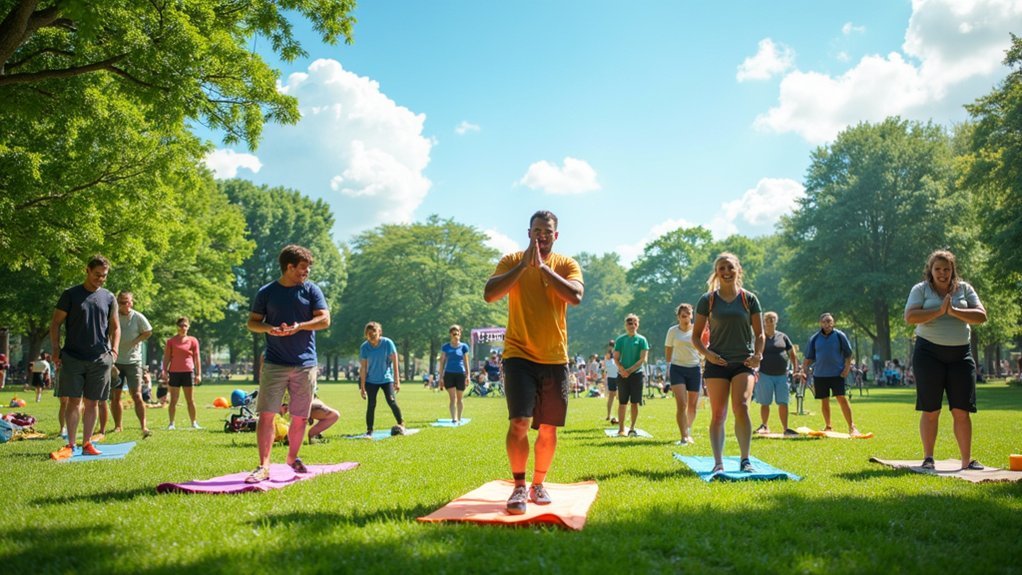
Through embracing the healing power of nature, therapeutic outdoor adventure programs offer remarkable benefits for individuals with special needs. You’ll find these structured outdoor experiences promote self-esteem, psychological well-being, and physical development in supportive group environments. According to recent research, these activities positively influence four key domains including self-efficacy, performance skills, social participation, and family cohesion.
- Wilderness therapy programs provide experiential learning through hiking, camping, and survival skills that can be adapted to various disability levels, fostering personal growth and independence.
- Equine-assisted therapies combine the therapeutic benefits of animal interaction with outdoor settings, enhancing social skills, reducing anxiety, and improving physical coordination.
- Nature-based interventions like outdoor music therapy, gardening, and adaptive play considerably reduce symptoms of anxiety and depression while improving cognitive function and social participation.
These programs are designed to be inclusive, with adaptations ensuring everyone can participate regardless of ability level.
Frequently Asked Questions
How Do Insurance Companies Typically Cover Adaptive Outdoor Fitness Programs?
Insurance companies typically cover adaptive outdoor fitness programs through general liability policies, accident insurance with excess medical coverage, and customized policies that view disabled participants as equal or lower risk than able-bodied counterparts.
What Certifications Should Instructors Have for Special Needs Outdoor Fitness?
For special needs outdoor fitness, you’ll want instructors with Adaptive Fitness Special Needs Certification, Autism Fitness Certification, and ACE credentials. Look for those with specific outdoor training experience and continuing education in sensory adaptations.
How Can Families Evaluate Program Safety Standards Before Enrolling?
You’ll want to inspect safety certifications, ask about staff training, review emergency protocols, check facility accessibility, observe a session, and request references from other families who’ve participated in the program previously.
What Transportation Options Exist for Participants Without Personal Vehicles?
You can use ADA Paratransit for door-to-door service, community non-profits like MyRide2.com, SMART Flex on-demand rides, or school transportation if it’s in your IEP. Many organizations will help arrange transportation.
How Do Seasonal Weather Changes Affect Program Scheduling and Activities?
Seasonal weather directly impacts your schedule, forcing you to plan morning sessions in summer heat, move indoors during inclement weather, and adjust activities based on temperature restrictions, particularly when it’s below 32°F.
In Summary
You’ll discover outdoor fitness isn’t limited by ability when you explore these three programs. Whether you’re enjoying nature-based adaptive movements, using specialized equipment in community parks, or participating in therapeutic adventures, you’re building strength while connecting with the outdoors. Don’t wait to experience these benefits—reach out to local organizations today and find the program that works for your unique needs.

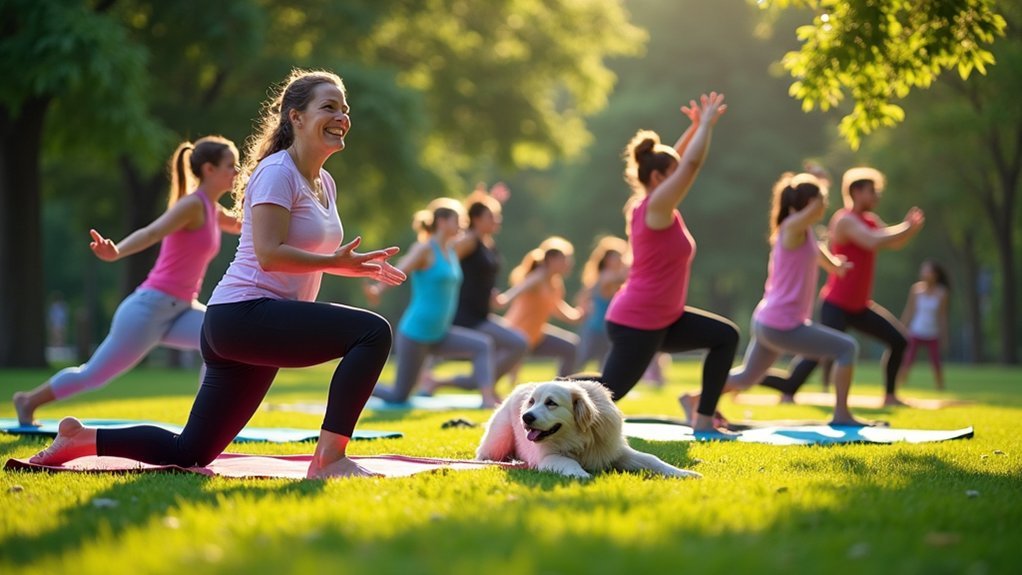
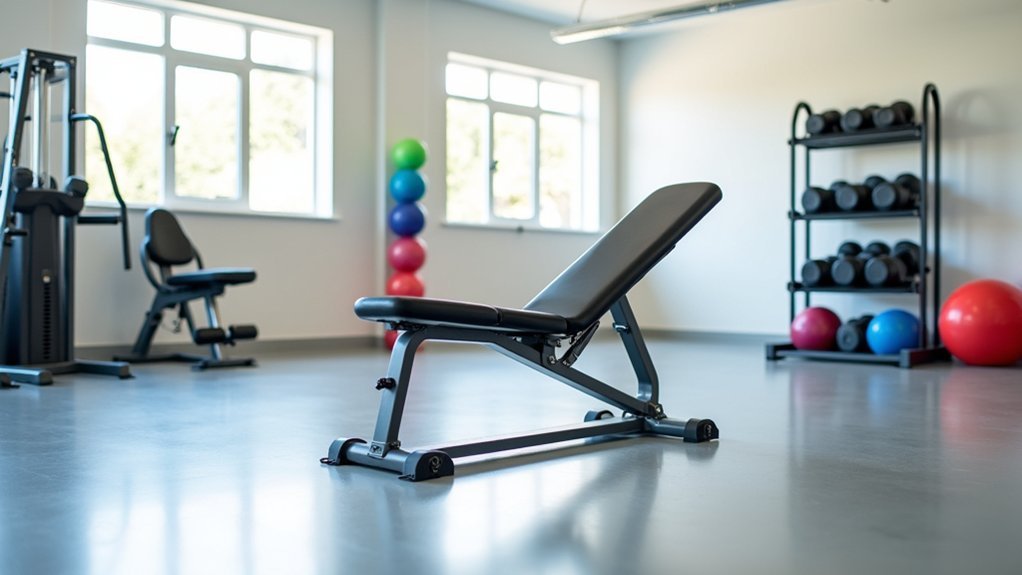
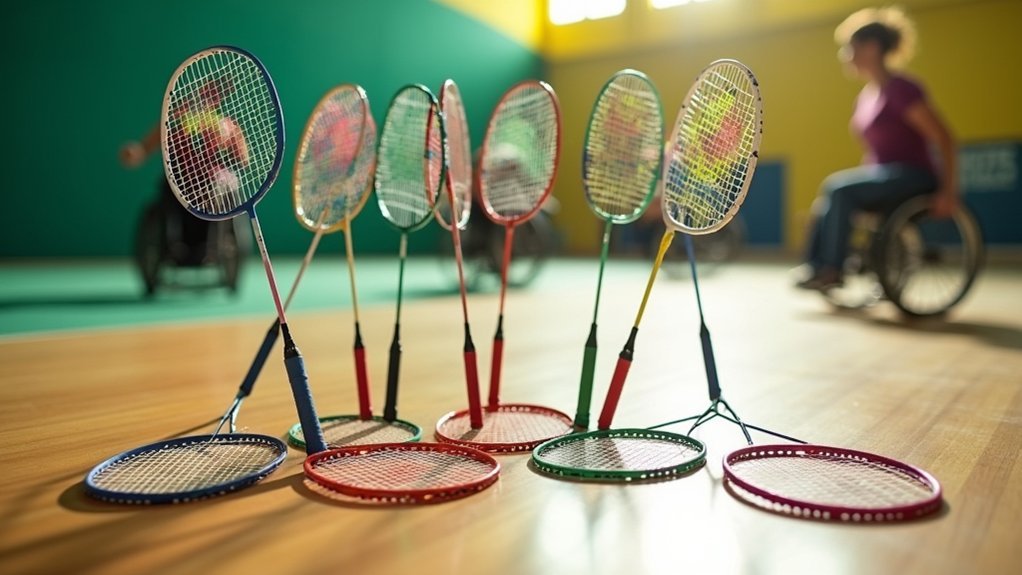
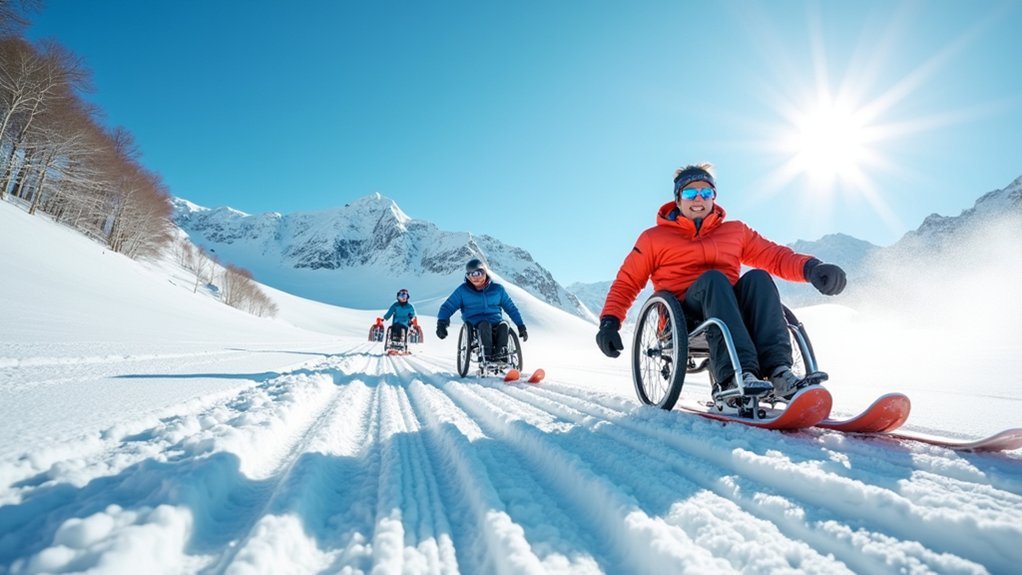
Leave a Reply